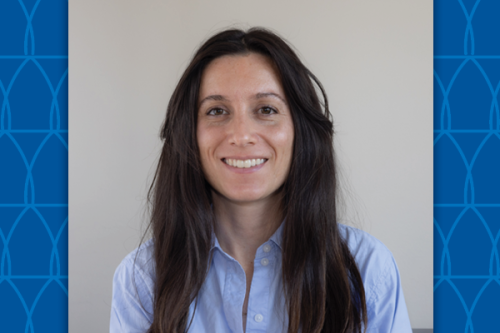
Rupprecht Named a STAT Wunderkind for Research on Gut-Brain Signaling
By Dave Hart

We are hard-wired to love sweets, but, as is so often the case, too much of a good thing can be a bad thing: overconsumption of sugar raises the risk of obesity, heart disease, type 2 diabetes, and other health conditions.
Laura Rupprecht, PhD, a postdoctoral researcher in the lab of Diego Bohorquez, associate professor of medicine and neurobiology, is on the leading edge of research exploring the biological processes that drive the craving for sugar, and how those processes might be mediated to improve health.
Rupprecht was recently named to the 2022 STAT Wunderkind list, one of 28 rising stars in science and medicine selected from among hundreds of nominations across North America by the STAT media company. According to STAT, the annual list celebrates “the most impressive doctors and researchers on the cusp of launching their careers, but not yet fully independent.”
She joined Bohorquez’s lab in 2018 after receiving her PhD in neuroscience at the University of Pittsburgh.
“I was always interested in how the gut and brain communicate to drive us toward selecting certain foods,” Rupprecht said. “I focus on sugar, which is one of the most powerful drivers of consumption.”
People like how sweets taste, but our taste buds aren’t what compels us to reach for the chocolate. The desire for sugar comes instead from the gut. Rupprecht and her colleagues have identified specific cells in the lining of the intestine that detect sugar and relay signals to the brain that fuel our drive to consume it.
"We’re looking at how intestinal cells recognize different nutrients and communicate with the brain,” Rupprecht said. “These particular cells recognize sugar and non-sugar sweets and send signals to the brain. We want to understand more about that process, because clearly it’s involved in things like diabetes and obesity.”
The ultimate goal is to use this knowledge to develop new therapies.
“The drugs used to treat these conditions are not always effective and often have side effects,” Rupprecht said. “If we can understand the circuitry that recognizes these substances and communicates to the brain, it might be possible to develop novel treatments that avoid some of those downsides.”